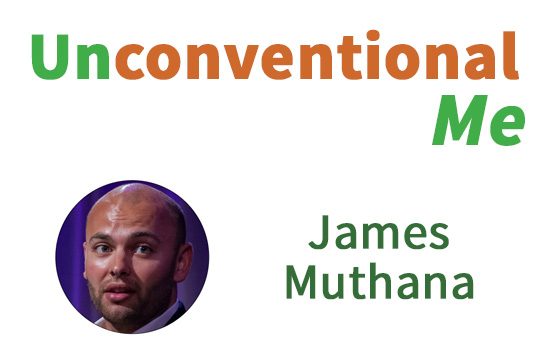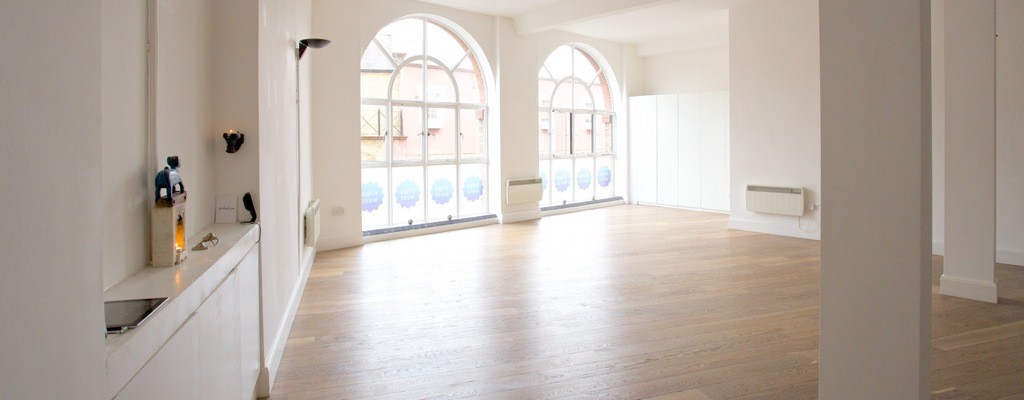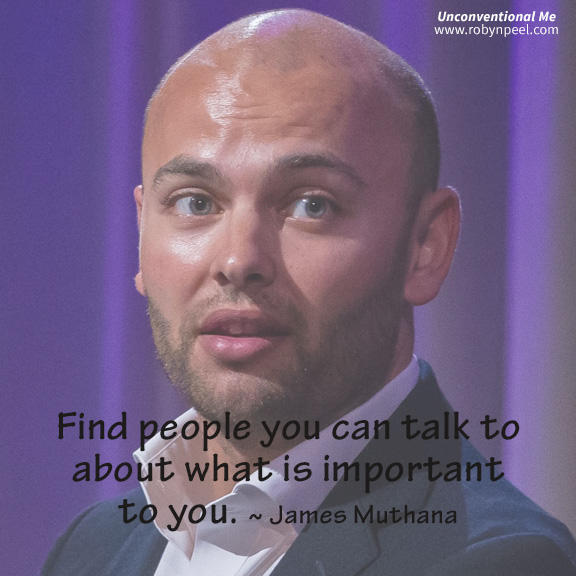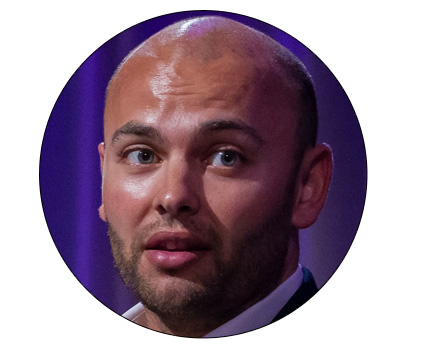 On a rainy Friday afternoon in April I spoke to James Muthana after he’d battled the M25 with his son to get to his mother’s house for a weekend away.
On a rainy Friday afternoon in April I spoke to James Muthana after he’d battled the M25 with his son to get to his mother’s house for a weekend away.
I had heard about James through a friend and was inspired by his career change from working in the City to running his own thriving community yoga studio and I wanted to know more about how and why he made this move. It was a wonderful reminder about how experiences can take you in a very different direction to the one you had envisioned.
To listen to the full interview, click on the audio link below.
So tell me what fills your days at the moment?
I currently run two businesses. One is called YogaAt, which organises yoga and mindfulness programmes for companies and is integrated into their wellbeing programmes. And then the second business, which is now the larger business although it was the second one we opened, is called Yoga West, which is a community studio, based in-between Action and Chiswick in West London. The key thing for the studio, for us, is that it’s a community, that it’s informal and people are part of something. That’s something that is often missing in big cities so it provides community and an opportunity to stop and reflect a little bit about life.
Most of my time is spent on Yoga West; I’d say it’s about 75/25. We have recently hired a few staff so I spend less on the day-to-day. I probably spend about a day a week managing the studio and I think that’s important because it’s a community studio and it’s important that I’m there and part of that community and it’s the studio at which I practice yoga as well. Then the rest of my work is about managing the team, making sure that what they are doing in the business is of interest to them, is useful to the business and useful to their skill set and that they are engaged and motivated in the business. I’m also supervising the marketing plan and working on strategy with our Studio Manager. We are just thinking about the future of our model, looking at the future of the company and looking at how that might evolve over time and then the steps we can take to get towards that.
What gets you from 18 year old you to you now running a community yoga studio in West London?
When I left university I wasn’t really able to connect the career choices I was making with the sense of what would actually give me personal satisfaction.
I don’t think I was very good at understanding that. I don’t think within my peer group that was really given much weighting. And I didn’t necessarily have people I could talk to about that to help me distil that.
I wasn’t sure what I wanted to do. I wanted to be successful and for other people to be impressed by me. I wanted to be seen to be impressive (or what I thought to be impressive or what I imagined to be impressive) by other people. And actually the idea of doing something that was going to be personally satisfying was a bit of an odd idea to me. In some ways it didn’t even seem to matter to me.
I was good at economics and mathematics so naturally the thing to do was to go into the City. In some ways it was a lack of confidence in myself and a lack of confidence in trying to work out what was going to make me happy. There’s also this idea of the City as being glamorous and exciting, which in some ways it is, so it drove me to that.
So I did that. Funnily enough at the same time I started work I met my girlfriend who is now my wife and I started yoga. And I got two things really from yoga. For the first time as an adult, and even as an adolescent, I would do a yoga class and I would not be thinking about the future. I would be calm, be present and at peace in the present moment. That was a new experience for me and that was an addictive sensation that I wanted more and more. But it also gave me a capacity to intuit and observe my own feelings, give weight to them and then factor those increasingly into decisions. So rather than making rational decisions based on no personal foundation, I was able to begin to take the feelings that I’d always had, be aware of them and then factor them into the decisions I make. And make decisions in a more intuitive way.
From my mid 20s onwards yoga became a dramatically more important part of my life. And I became aware it really changed me as a person in a really positive way. It allowed me to become the person I hoped I could be but wasn’t really sure how I could be. I got to my early 30s and things had kind of changed in my life and I began to think about what was going to be a personally satisfying and meaningful existence. I had thought about it but I’d never managed to translate that into actions and business plans. And I started to do that. I realised that I had become a much happier person and a large part of that was yoga.
I wanted to make my living doing something that I actually cared about.
I was increasingly jaded by what I was doing and although I was pushing myself very hard it didn’t mean much to me. It sounds a bit trite and a little bit cliché-ridden but I realised yoga made me a happy person. I realised that it would be quite noble if I could make my living and encourage other people to do yoga. I know it’s not for everyone but I thought there is a significant group of people whose lives would be enriched by practicing yoga and practicing meditation. So I began to look into ways of doing that.
It was an intuitive thing at first and then I began to think, well rationally how do I make something that’s commercially and financially sustainable.
What was the turning point from it going from an idea to actually being a business that you left your job for?
I looked at the area and looked at potential different business models and things where I could take some of my relevant existing skills and apply them. And it became increasingly clear that there was an opportunity that would give me a foot into that sector and would also potentially open up for other opportunities and I could learn as I went along.
I gradually built that plan up and I was reasonably well paid in the City so I was able to save up quite a lot of money as well, so I had a reasonable amount of financial security. Then it was just a question of just giving it a go.
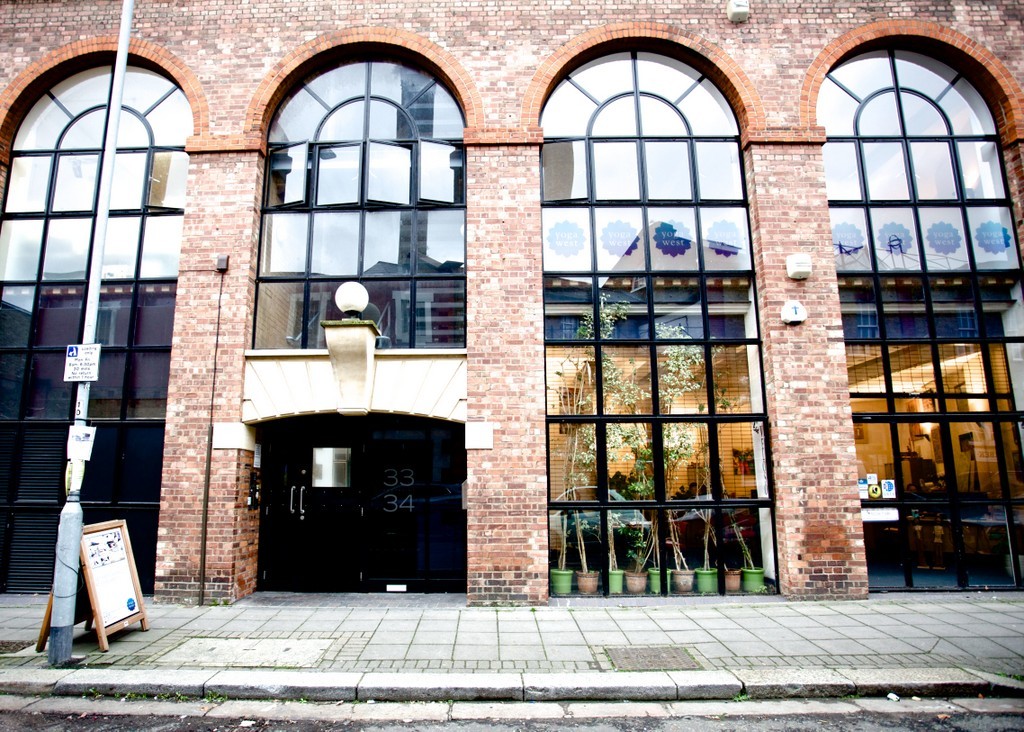
How long ago was that?
I started YogaAt at the beginning of January 2011, so that’s just over five years ago. And then I worked purely on that business for about nine months. The great thing about the business was that it gave me a foot within yoga and it opened me up to a lot of people and ideas and some opportunities. Then an opportunity came up to open up a studio and I was beginning to think about other opportunities, and that was one of them. And very soon after I began investigating it and before I had really kind of written the plan I had hoped, a very good opportunity came up that I thought I’ve got to try this.
You mentioned to me previously that in some ways the tasks you are doing now aren’t that different to what you were doing in the City, although obviously the environment and context has changed. Are you able to tell me a bit more about that?
Sometimes I think, gosh, I’m still doing the same role I was doing in the City! Sometimes I think that is in a bad way, as I think you can change superficially the wrapping but actually what is inside is the same. So I have to be wary of that. But generally I think of it in a good way and the fundamental difference is that it’s about meaning.
I am currently writing a business plan, so doing financial forecasts for an expansion, and I did do similar spreadsheet tasks when I was in the City. But when I’m working on the forecast for the business it’s different. It’s a business I’ve set up and I genuinely enjoy working with all the people and there is a nice positive dynamic. But it’s even more than that. It’s that I’m proud of what we do. We’re meeting a couple of fundamental human needs that are ill met by modern city living. As I said, the need for time to stop, reflect upon one’s existence and how one is living one’s life. And then the need for community in an isolated, fast paced and often lonely city.
I’ve seen the studio and YogaAt change the lives of people. People who’ve had problems and we’ve helped them manage those problems. People have had bad work-life balance. People have been incredibly unhealthy. And they’ve changed their lives and some of those people have even become yoga teachers in the five years we’ve been around.
One of the things with which I really struggled when I was younger and still struggled with it when I was in the City was meaning. Meaning – why am I doing it, why am I here, what’s the purpose of me doing it. And often I couldn’t really answer that question in the City. That existential question gnawed at me sometimes and it was really unpleasant and it wouldn’t go away.
There is a lot of uncertainty in creating a business and there’s a lot of ups and downs and the yoga really helps in maintaining equanimity. But even beyond that, the biggest difference is the meaning. I don’t have that “why am I doing what I’m doing” really at all. I might have “is this going to work” or “is this new idea workable” but those feel like a different level of problem or worry to that problem I really had which was I don’t understand what’s the point of me doing this, what am I doing with my life.
What’s the biggest lesson you have learned?
The lesson I am trying to learn and I often fail to learn it, is to accept whatever happens. If things go well, that’s fine. If things go badly, that’s fine. Just to be non-attached to success and failure.
To focus on doing the right things each day, be present, be calm, treating people well, taking a step back and seeing the bigger picture. And not necessarily thinking about results, not necessarily getting excited when things go well and getting upset when things go badly but maintaining equanimity.
Personally I think that’s hugely healthy. If you can just be calm and happy no matter is going on, I kind of think you’ve got it! That is what I’m aspiring to.
What feels next for you personally or the business? What’s the next step career wise for you?
A little bit by luck, rather than being particularly clever, we have fallen upon a really nice model for community yoga studios. I think it works. I think it works in terms of cultivating community. I think people have a nice relationship with us and it’s not a purely functional relationship. I think there’s quite an emotional relationship and they feel very fondly towards the studio and other people at the studio. And increasingly it works commercially, although that wasn’t something that happened immediately.
I think we set up and we’ve learned as we’ve gone along. And a lot of our branding foundations aren’t really there, so that’s what we’re looking at now – focus grouping, understanding our members better. Once we’ve got that I think there is an opportunity to replicate what we’ve done.
The only issue, and I’m really aware of this, is that if you have a community studio model you have to be careful about how you grow that model. The big thing for us is that we learn everyone’s name. So you come to your second or third visit and we know your name. And perhaps people think that’s a bit freaky but I genuinely think people think that it is nice. They feel that we value them, we listen to them, and I think that is very important to people. That is what we always want to have so we have to be careful that if we do grow that doesn’t get lost because I think that is one of our guiding principles. If we lose that then we lose something fundamental about who we are and the community and the experience we are trying to deliver.
What career advice would you give to younger people?
Just talk a lot! Talk a lot to people who are willing to listen! People that you like and respect.
Find people that you can talk to. Often what you want is quite nebulous and there’s a disconnect between what’s in your head and what’s in the real world and it takes time to establish that connection. You need to reflect upon it, you need to discuss it, you need to get it out there and see what people think.
Find people you can talk to about what is important to you. Keep the dialogue going and see where that goes and be honest about what is important to you. That is much, much healthier than having uncertainty and keeping to yourself and then not being able to connect what you want with the decisions you make and ultimately making a choice that is going to be life reducing rather than life affirming.
I definitely wasn’t intending to open up a yoga studio when I was 21! One thing I’ve learned is to be open. Sometimes you can be going doggedly after something and all these amazing, exciting experiences and opportunities are coming and you’re just missing them. Your life could be enriched and your career more interesting and possibly more successful (however you want to define that) by being a little more open to what life throws at you. You can’t know this when you’re 16.
